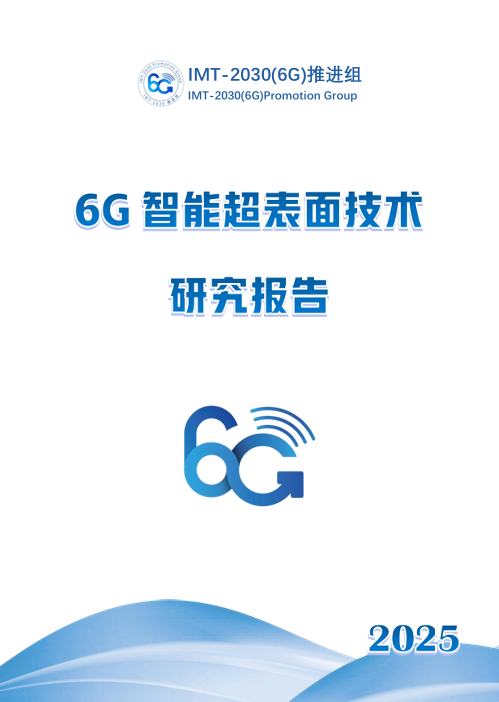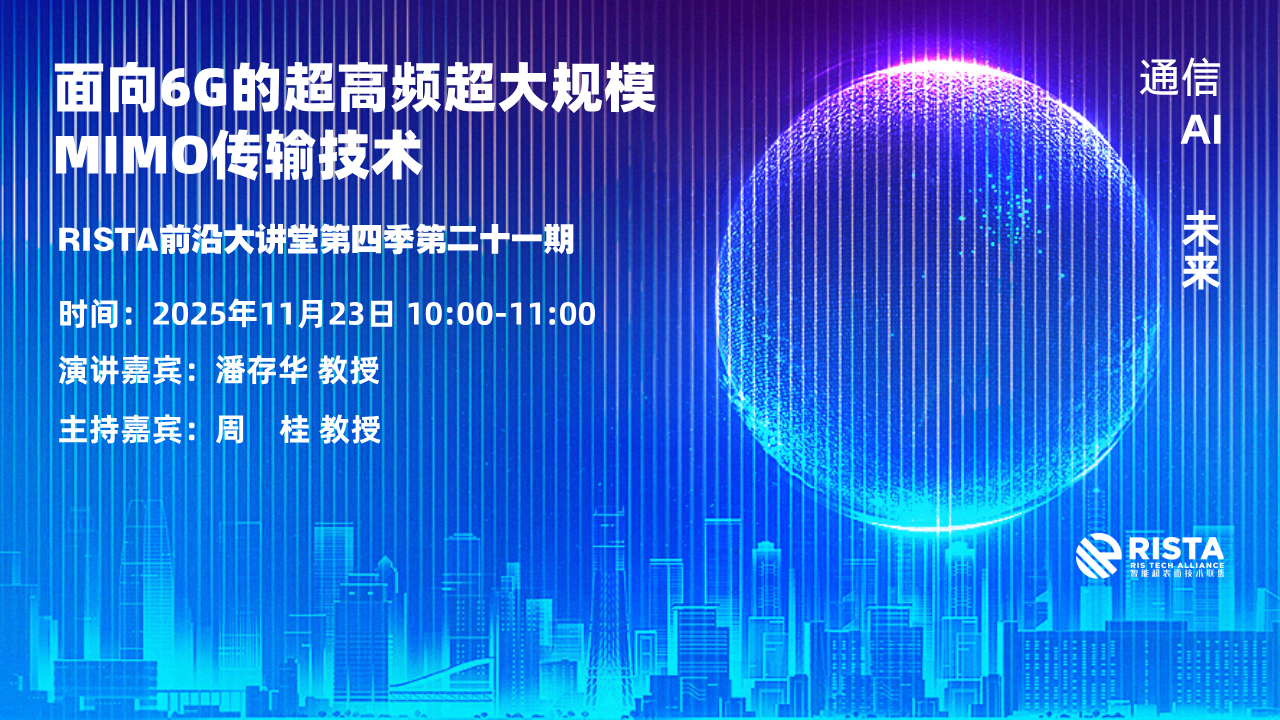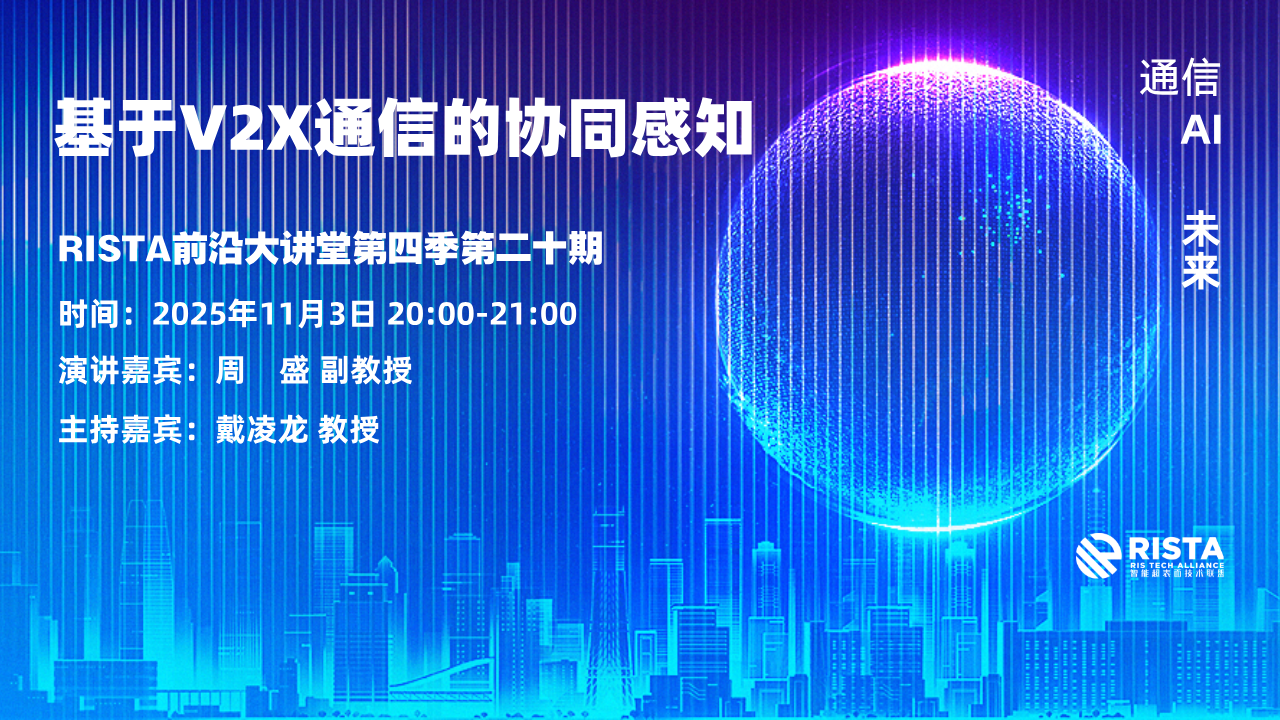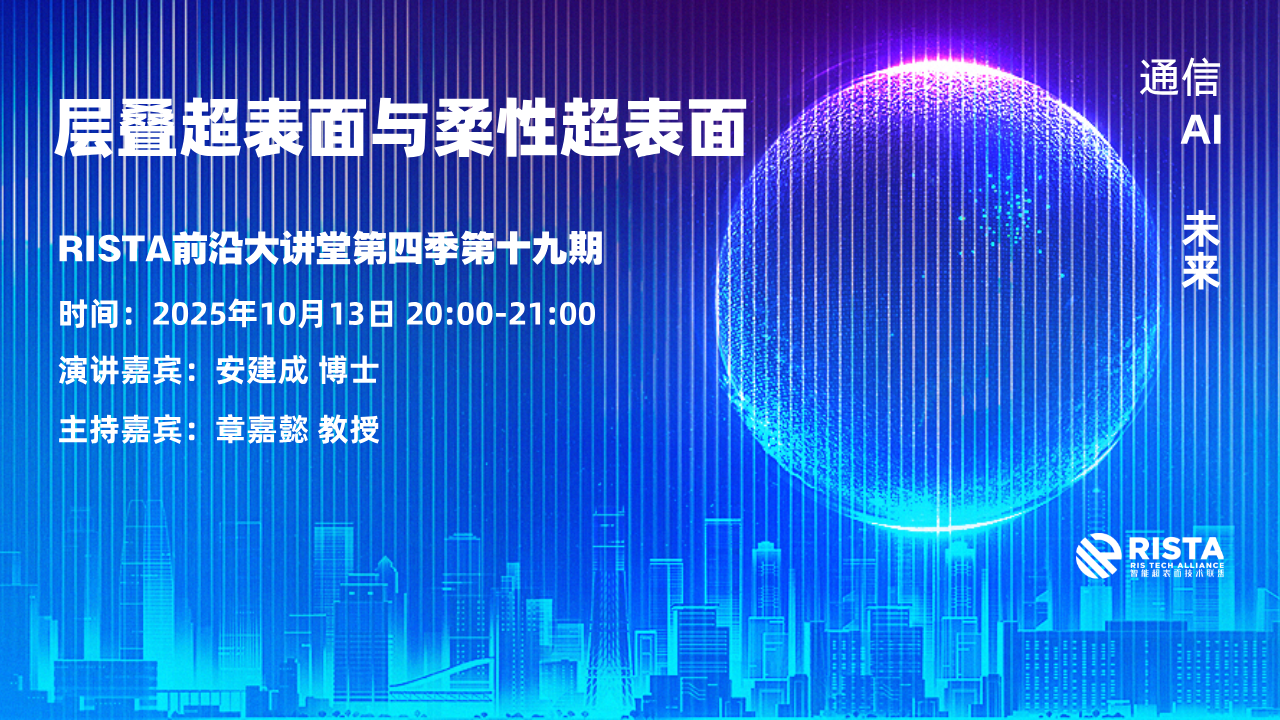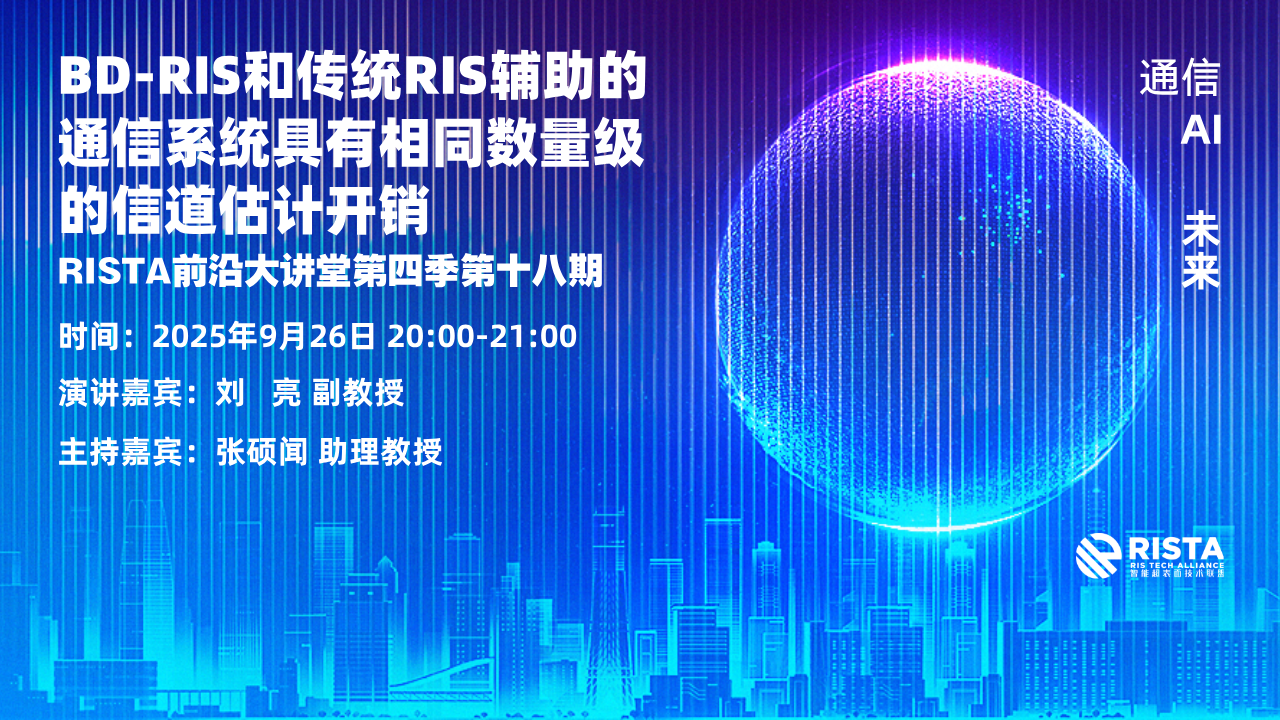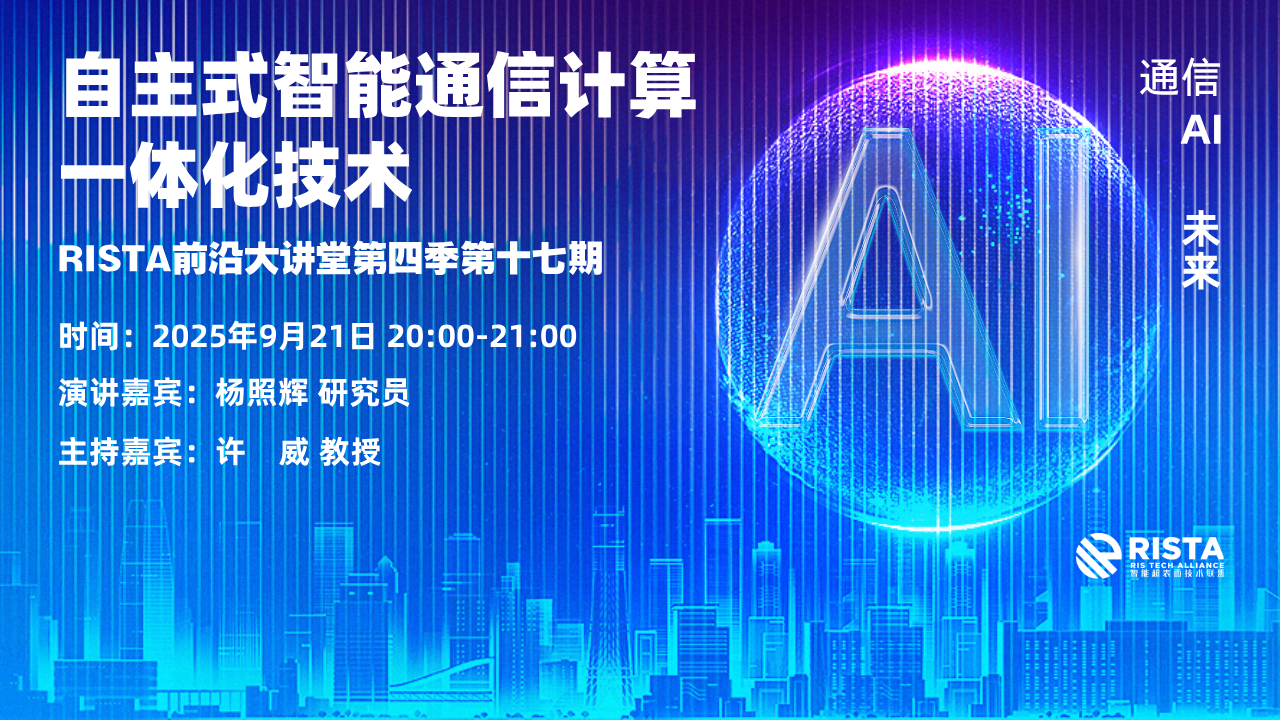Introduction
The five working groups of RISTA are Hardware & Control Working Group , Software & Algorithm Working Group, System Technology Working Group, Industry Promotion Working Group, and Standard Cooperation Working Group.
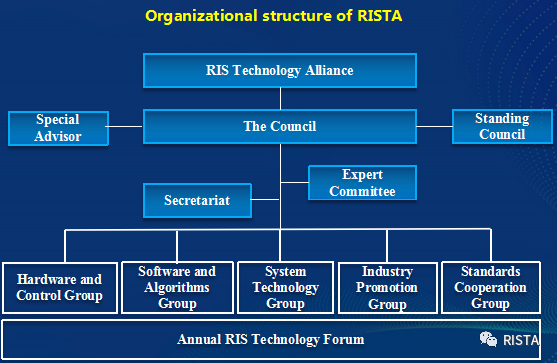
The kick-off meetings of the five working groups have been held recently. The kick-off meeting of each working group introduces and discusses its main responsibilities and recent work plans, and outputs its work arrangements.
System Technology Working Group
Key Responsibilities:
1) Provide the system technology research cooperation platform for the alliance.
2) Guide the alliance members to carry out cooperative research on RIS system technology.
3) Establish a good Industry-University-Institute cooperation mechanism in RIS between the alliance members.
4) Promote the implementation of RIS scenario requirements, system architecture design, system-level evaluation method research and solution design.
5) Provide technical reports and preliminary evaluation results as cooperation outputs.
Short-Term Work Arrangement:
1) Further improve the list of members in the near future.
2) Solicit opinions and suggestions from members.
3) Collect specific problems and challenges that need to be solved urgently in the design of the RIS system.
4) Carry out research work in priority order.
Medium and Long-Term Work Arrangement:
The System Technology Working Group plays a linking role among the five working groups of RISTA.
1) Combine the research results of the Hardware & Control Working Group and the Software & Algorithm Working Group to focus on the challenging issues in RIS system engineering.
2) Achieve consensus in areas including RIS application scenarios, system architecture, system level evaluation methodology and related system indicators.
3) Coordinate with the Industry Promotion Working Group to promote the implementation of the RIS industry and promote the international standardization cooperation of the RIS system with the Standard Cooperation Working Group.
Software & Algorithm Working Group
Key Responsibilities:
1) Provide a cooperation platform for the software and algorithm research for RISTA.
2)Guide group members to provide important inputs, discuss the future development trends of RIS-related algorithms, and output high-quality research results.
3) Establish the cooperation mechanism between academia and industry about RIS-related fundamental theories, key technologies, implementation and verification.
4) Advance the applications of RIS related software and algorithms in practice.
Short-Term Work Arrangement:
1) Establish several special study groups according to the research wishes and basics of group members (such as theory study group, channel modeling study group, channel estimation study group, precoding algorithm study group, interdisciplinary study group, etc.), and encourage the collaboration among these study groups.
2) Organize RIS-related forums and seminars based on academic organizations such as Chinese Institute of Electronics (CIE), China Institute of Communications (CIC), and Chinese Association for Artificial Intelligence (CAAI), so that the group members and non-members can share and discuss the latest achievements.
3) Organize RIS-related special issues to extend the academic impact of RIS and encourage the related researches relying on academic journals such as China Communications, Journal on Communications, Chinese Journal of Electronics, and Frontiers of Information Technology and Electronic Engineering.
4) Communicate with other working groups (especially Hardware & Control Working Group and System Technology Working Group), explore the coordinated development of RIS-related technologies and schemes, and advance the integration of RIS technologies in various research fields.
5) The above-mentioned seminars and special issues can be held cooperatively with IMT-2030 RIS task group, IEEE ComSoc RIS-ETI and other organizations, so as to encourage the idea exchanges among different organizations.
6) Launch 1-2 special technical or industrial activities in 2022.
Medium and Long-Term Work Arrangement:
1) Organize the “Global RIS algorithm challenge competition” based on top international conferences, such as IEEE ICASSP and IEEE ICC. The competition topic can be found in the classical RIS algorithm researches (such as low-overhead RIS channel estimation algorithm, low-complexity RIS precoding algorithm, robust interference mitigation algorithm for multi-operator RIS-aided systems, etc.), so as to attract global researchers to solve problems together. The winners will be rewarded.
2) Collect highlight achievements of group members, and submit them to the news media on behalf of RISTA, so as to encourage the publicity and strengthen the impact of RIS-related outstanding achievements.
3) Work cooperatively with the Standard Cooperation Working Group to promote the standardization of the advanced RIS software and algorithms. Build a standard RIS simulation platform to provide a performance evaluation framework as well as baselines for various research institutions.
4) Participate in the writing of RIS-related technical reports and white papers.
Hardware & Control Working Group
Key Responsibilities:
1) Provide a cooperation platform for the hardware and control technical research, and guide RISTA members to provide technologies in the field.
2) Establish communication mechanisms between alliance members, and facilitate discussions on RIS hardware technologies and future development trends.
3) Conduct deep collaborative studies and produce high-level achievements.
4) Provide the alliance among the groups for fundamental theories, key technologies, application verifications, etc., of RIS hardware and controls. Enhance the industry-university-research cooperation between alliance members.
5) Provide key hardware services for RIS systems, and propel their applications.
6) Share and recommend the latest achievements and development trends of RIS hardware, and expand the influence of the alliance.
Short-Term Work Arrangement:
1) Relying on the alliance, academic journals on microwaves and communications, organizations, social media, etc., enhance the publicity on RIS technologies and introductions on the alliance. Attract universities, enterprises, and institutes to join in, so as to enlarge the numbers of the members.
2) Organize communications and visits between the alliance members, and conduct discussions on RIS hardware designs and control technologies, hence promoting the development of RIS hardware.
3) Organize special issues in various academic journals about RIS, expand the influence of RIS technologies, and propel the investigations on RIS.
4) Carry out irregular communications with other working groups, especially the Software & Algorithm Working Group and System Technology Working Group; discuss harmonious development of RIS technologies and solutions; enhance interdisciplinary integrations between various fields.
5) Based on the Chinese Institute of Electronics, China Institute of Communications, and other official academic organizations, organize special forums and workshops about RIS and share the latest achievement and trends with peer members and institutes.
Medium and Long-Term Work Arrangement:
1) Collect highlighted achievements of RIS hardware from alliance members. Submit them to the press in the name of RISTA, and thus increase the exposure of the progress and stimulate the participation and enthusiasm of the members.
2) Organize branch sessions in international conferences on microwaves and communications; enhance the influence of the alliance. Organize RIS design competitions, and attract researchers all over the world to tackle difficulties. Give rewards to winners.
3) Cooperate closely with the Standard Cooperation Working Group; propel the standardization of outstanding RIS hardware structures.
4) Build uniform testing platforms for RIS hardware; provide institutions with uniform performance evaluation frames for RIS hardware.
5) Coauthor technical reports and white books on RIS technologies.
Industry Promotion Working Group
Key Responsibilities:
1) Coordinate the alliance units and organizations such as IMT2030 to carry out the integration test of RIS equipment, and system tests between RIS and base station and terminal equipment.
2) Exhibition and promotion of innovation achievements, Promote cooperation between enterprises and industries of the RIS industrial chain.
3) Actively promote demonstration of RIS applications and build RIS industry ecology.
Short-Term Work Arrangement:
1) Determine the members of the working group, Set up the working group complete the division of work.
2) Complete the the work plan on the basis of full solicitation of opinions. Report work plan to alliance council.
3) Participate in writing RIS technical white papers.
4) Organize the second “RIS Technology Forum”.
5) Support the alliance to complete the establishment of CCSA propellant group, cooperate with “Millimeter Wave Terahertz Industry Development Alliance” and other industry alliance organizations.
Medium and Long-Term Work Arrangement:
1) Improve the vitality of the working group, encourage members to participate in the work of the workgroup, and elect deputy leader units.
2) Perform the responsibilities, complete the work plan and work summary report as the alliance required.
3) To carry out communication and cooperation between working groups of the alliance.
4) Assist the Alliance to absorb more member units, actively form the work content to the media to expand the influence of the alliance.
5) Organize seminars contained system equipment and terminal manufacturers to discuss the application scenarios, device forms and requirements, explore RIS networking schemes.
6) Cooperate with IMT2030 and other industry organizations to timely carry out intelligent supersurface interoperability tests.
7) Organize RIS application demonstration, show the value of RIS to the society and industry.
8) Publish white papers on test and application results to the industry.
9) Establish cooperative relationship with Beijing International Communication Exhibition (PT), and assist alliance members in business exhibition.
Standard Cooperation Working Group
Key Responsibilities:
1) Establish the mechanism to consolidate the internal cooperation among alliance members; and promote the RIS-related research and standardization activities.
2) Identify the potential impact on the standard; and promote the standardization process based on the relevant research results of all working groups.
3) Establish and maintain cooperation and communication with external standards and academic organizations; share and discuss the latest standard development trends and standard views through seminars and special journals.
4) Publish and contribute the materials periodically including the report/white paper on the requirement, trend of standardization for RIS.
Short-Term Work Arrangement:
1) Attract relevant universities, enterprises, scientific research institutes in different fields(terminal, vendor, measurement, etc.)to join the standard cooperation working group.
2) Carry out standardization of RIS under the guidance of the IMT-2030 (6G) promotion group; and further extend and complement the work on the uninvolved issues and standard organizations of IMT-2030 standardization group.
3) Sort out and summarize the existing and potential standard research directions/progresses/achievements of RIS in different fields to guide the all-round development of subsequent standardization work.
4) Establish and maintain cooperative relationships with external organizations (including domestic and international standards organizations or quasi-standard organizations in different fields such as communications, materials, etc.); and coordinate the standardization of RIS.
Medium and Long-Term Work Arrangement:
1) Hold regular working meetings within the alliance:
a) Synchronize the standardization progress of RIS, analyze the feasibility of current standards and potential evolution direction, etc..
b) Sort out and synchronize the technical progress, research results and standardization requirements of RIS in different directions; collaborate to promote the presentation of research results of each working groups in the relevant standardization organizations.
2) Cooperate with relevant external partners to jointly hold seminars and special journals to share and discuss the latest development trends or achievements of RIS, to further promote cooperation with external partners.
3) Coordinate all member of standard cooperation working group to write external reports, such as standardized requirements/direction reports, or proposals, etc..
4) Participate in collaborative writing technical reports and white papers related to RIS.
–End–
If you want to join RISTA, please email secretariat@risalliance.com to get the joining method. If you are a member, please email lixs156@chinaunicom.cn to join one or more working groups.RISTA looks forward to your joining!

